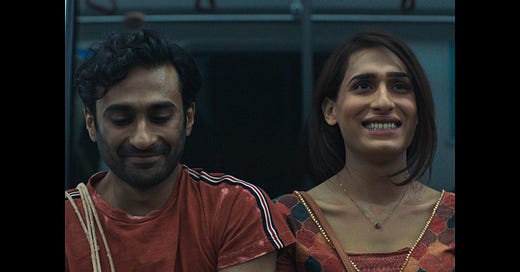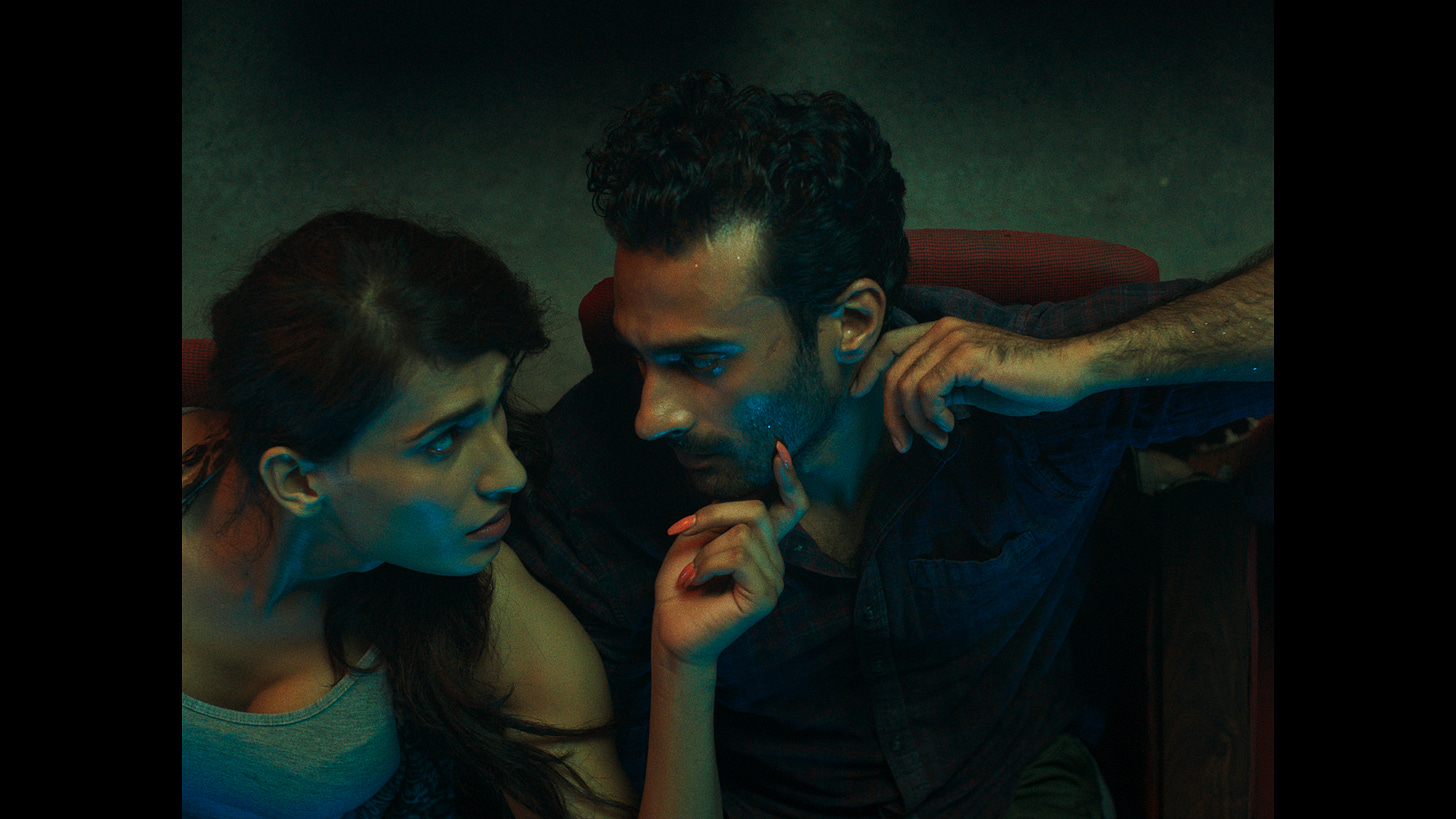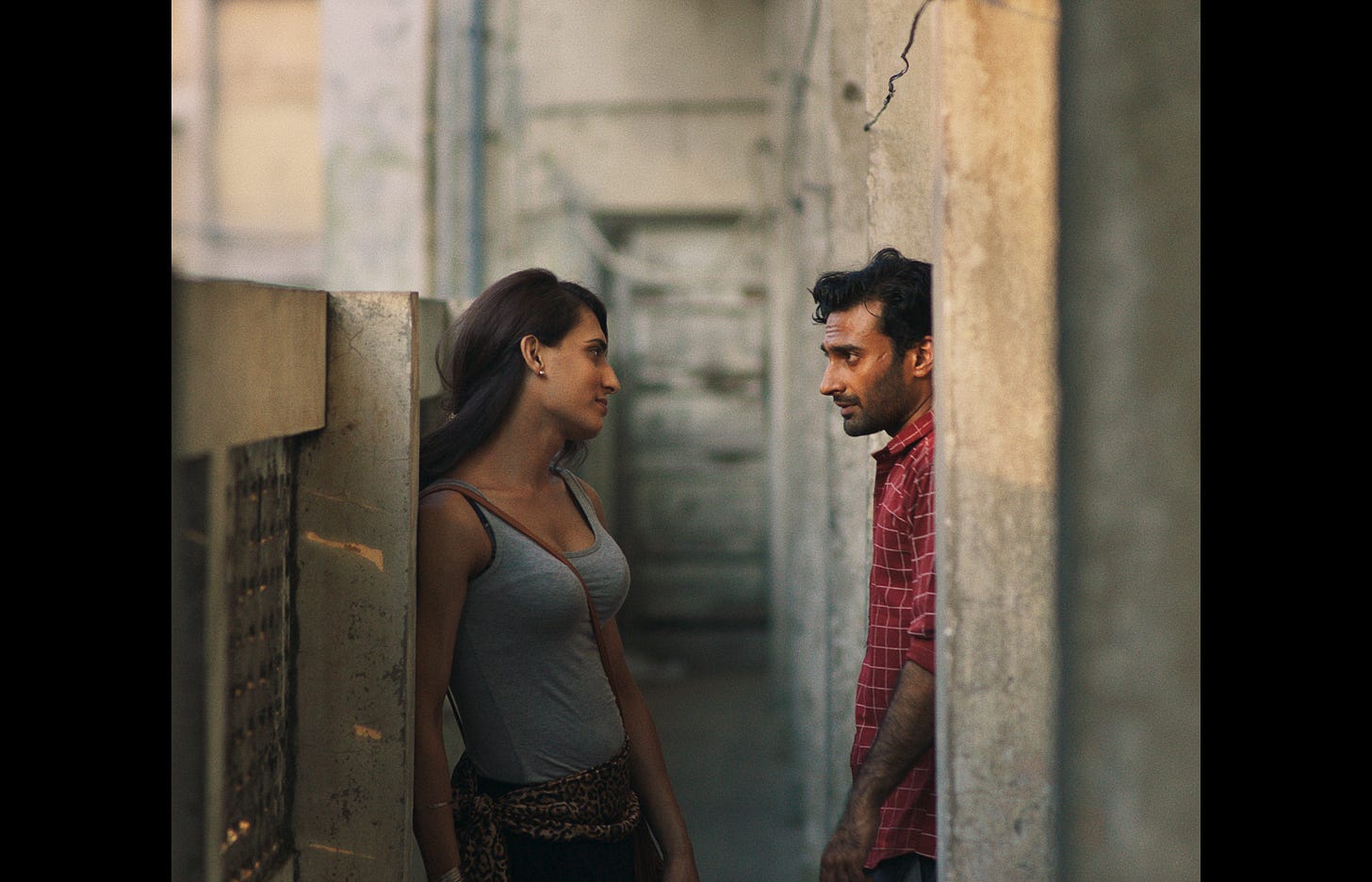If you haven't seen queer Lahore, you haven't been born
Joyland is the Pakistan's first-ever entry in the Academy Awards after winning the Queer Palm at Cannes. What does Joyland mean for the film sector and for the Pakistani diaspora?
As we draw to the end of the year, I’ve been thinking of how important 2022 will be in the history of Pakistani cinema. This year has revolutionised Pakistani film at home, and in the diaspora.
The 25th of December is next week, and it’s both Christmas and Pakistan Day. 25th December is the birthday of Muhammad Ali Jinnah Day, the founder of Pakistan. 2022 has been a revolutionary year for Pakistani film, both at home and in the diaspora. The festive preparations of our non-Pakistani family are mirrored by cans of Pakcola and communal celebrations amongst the Pakistani diaspora on Christmas day: if you go for a biriyani on Christmas day, sometimes the two meet.
2022 saw the first Pakistani film in the history of Pakistan at the prestigious Cannes film festival. Just this month, the Office for National Statistics confirmed just over 2.5% of the UK is Pakistani. But how often, if ever, have you seen queer Pakistani identity unpacked on British screens beyond My Beautiful Laundrette?
2022 has marked a year of two bifurcated Pakistani cinemas: one for commercial film, and another for independent film. Between the releases of Joyland and Maula Jatt (a remake of a classic Lollywood film) has never seen such an active year for Pakistani film, both mainstream distribution, and independent distribution. The Guardian described Maula Jatt as "Game of Thrones meet Gladiator", with its blurb under the title reading "Entertaining new version of Pakistan cult movie follows a young noble boy spirited away to a poor village when a rival clan slaughters his parents". With a budget of $2,000,000, the film has made over $10,000,000 worldwide. While modest in terms of British box office results, the success makes The Legend of Maula Jatt the most lucrative Pakistani film of all time. On one hand, the corporate film, and on the other hand, the independent film. Maula Jatt on the left, Joyland on the right: two influential films from an already underrepresented country in the global south. If Maula Jatt is the most commercially successful Pakistani film of all time, Joyland is the most critically acclaimed one.
Joyland premiered at the 2022 Cannes Film Festival in May where it competed for the Caméra d'Or. It received a standing ovation after its screening, winning both the Jury Prize and the Queer Palm Prize. It has been selected for the Best International feature at the 95th Academy Awards, a first for any Pakistani film. Marked by a melancholic mood and a throbbing longing after Aman Ramna, Faisal’s father desires a male grandson and a traditional Panjabi household. The mundane day-to-day family life gives way to an intimate exploration of a lower middle-class Pakistani family in the city of Lahore, Panjab, the second largest in the country after Karachi. Filled with loss, love, and awe-inspiring scenes that juxtapose the orthodox heteronormative and cisgendered life with that of the erotic Khwaja sira theatres, Joyland hits a melancholic nerve closer than our jugular vein for the LGBTQ Pakistani diaspora.
Joyland was banned in Pakistan, but after a colonial legacy that persecuted trans women and queer people, is it so surprising? Under the Criminal Tribes Act, Khawaja Sira (the third gender) were punished, with the law reading "Any eunuch... who appears, dressed, or ornamented like a woman, in a public street or place, or in any other place, with the intention of being seen from a public street or place, or who dances, or pays music, or takes place in public exhibition" could be sentenced to up to two years of imprisonment plus a fine. The partition of India in 1947 saw many pieces of legislation still in place as a hangover- and it was only in 2009 did Pakistan uphold the rights of the Khwaja Sira community.
Nadia Rahman, a Researcher/Policy Advisor on gender at Amnesty International wrote "when drafted, Pakistan had one of the most progressive legislations on transgender rights in the world...The ban on the film Joyland comes against a backdrop where the right to freedom of expression and the already limited rights of transgender people are under increasing threat in the country". The organisation also reports that “in the last year alone (October 2021- September 2022) 18 transgender people were reported to have been killed in Pakistan- the highest figure in Asia”, but this is likely to be a number that is much, much higher because of underreporting in the country.
Joyland is at the intersection of unpacking patriarchy in Pakistani families, gender, sexuality, and what it means to be Pakistani away from the masala films of India and Pakistan. The Masala film genre rose in the 1970s: ironically when Zia ul-Haq, the dictator, began to ban films in Pakistan: including Pakistani films. Masala films have a little bit of everything: romance, drama, action, and more. Sholay was amongst the first Masala films released, and a formative cinematic memory amongst the British Asian diaspora. Joyland has now entered into a cannon of Pakistani film: when you canon build, you empire build, as Toni Morrison reminds us. We are seeing the beginning of a whole new era of Pakistani films exploring LGBTQ identity, and a canon of Pakistani cinema emerging that is pugnaciously and rambunctiously inclusive.
Pakistan started banning films in the 60s, and the restrictions increased even further under the military dictatorship in Pakistan in the 70s. Since Zia, Pakistan has banned dozens of films. Gurinder Chadha (the director of Bend it Like Beckham) had her film The Viceroy's House banned for the misrepresentation of Mohammad Ali Jinnah, the Founder of Pakistan. Slackistan was banned in 2010, and it’s still hard to find to this day.
A month ago, the Pakistani Ministry of Information and Broadcasting banned the film for its “highly objectionable material” in the portrayal of a relationship of a man with a transgender woman. The government said the movie defies the social norms of the Republic of Pakistan: something that says it's impossible to be both LGBTQ and Pakistani at the same time. A series of baffling other events took place, culminating in the ban being reversed across the country, but in Lahore, Panjab where the film was shot, the film remains banned. The breathtaking mise-en-scene means that the cinematography brings Lahore’s famed old city to life. While Maula Jatt has demonstrated an unquenchable appetite for Pakistani film, can independent cinemas match the thirst to bring the same communities over the threshold barrier for Joyland in LGBTQ history month? Independent cinemas didn’t distribute Jatt: mainstream ones did, but independent cinemas will be home to a quiet revolution of Pakistani representation in just over two months’ time.
Joyland is a revolutionary and insurrectionary film that redefines what it means to be Pakistani against the backdrop of the old city of Lahore. Lahore to Amritsar is 40 miles: the same distance as traveling from my home city of Cardiff to nearby Swansea, but Lahore and Amritsar are a world away. There are no bans on Joyland on the Indian side of Punjab. The film touches on sexuality, gender, gender norms, and on class, topics that remain taboo within Welsh and British society, too. As a queer Welsh Pakistani person, Joyland is the representation on film I was always looking for, but that I never quite achieved: it was just Eastenders, or My Beautiful Laundrette. To be Pakistani was one thing, to be Pakistani and LGBTQ was another thing.
With its high production values and twisting storylines, Joyland will be released in British cinemas on February 24th for LGBT history month. January 1st is not only the new year but “Just over 60 sleeps until Joyland is released”. Make sure you watch it.
A special thanks to Moira McVean for editing this essay, and for enduring and priceless support.







